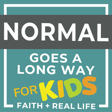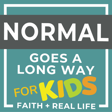
66: The Importance Of A SAFE Place To Be With God with Corey Garrity
Corey Garrity is the Associate Pastor at Redeemer Redwood City in the heart of Silicon Valley. He has a deep passion for helping people know, love, and follow Jesus. He studied business management in his undergrad at Concordia University Chicago and graduated from Concordia University Irvine’s Cross-Cultural Ministry Center, with an M.A. in Theology and Culture. He grew up in North Carolina which is where his love for barbecue began. He is married to Madeline and they have a beautiful daughter, Mara with their second baby due this June.
Corey joined Ryan Pfendler and Jill Devine on this week’s episode to discuss church attendance among millennials, going out in the community to share God’s word, and the power of saying hello to complete strangers.
Instagram: @coreyrgarrity
Redeemer Redwood City Website: https://www.redeemerrwc.org/
Collective Co. Website: https://www.collectiveco.online/
Corey’s LinkedIn: https://www.linkedin.com/in/coreygarrity/
Normal Goes A Long Way Website: https://www.normalgoesalongway.com/
Normal Goes A Long Way Instagram: https://www.instagram.com/normalgoesalongway/
Normal Goes A Long Way Facebook: https://www.facebook.com/Normal-Goes-A-Long-Way-110089491250735
Normal Goes A Long Way is brought to you by Messiah St. Charles: https://messiahstcharles.org/
Two Kids and A Career: https://www.jilldevine.com/podcast


